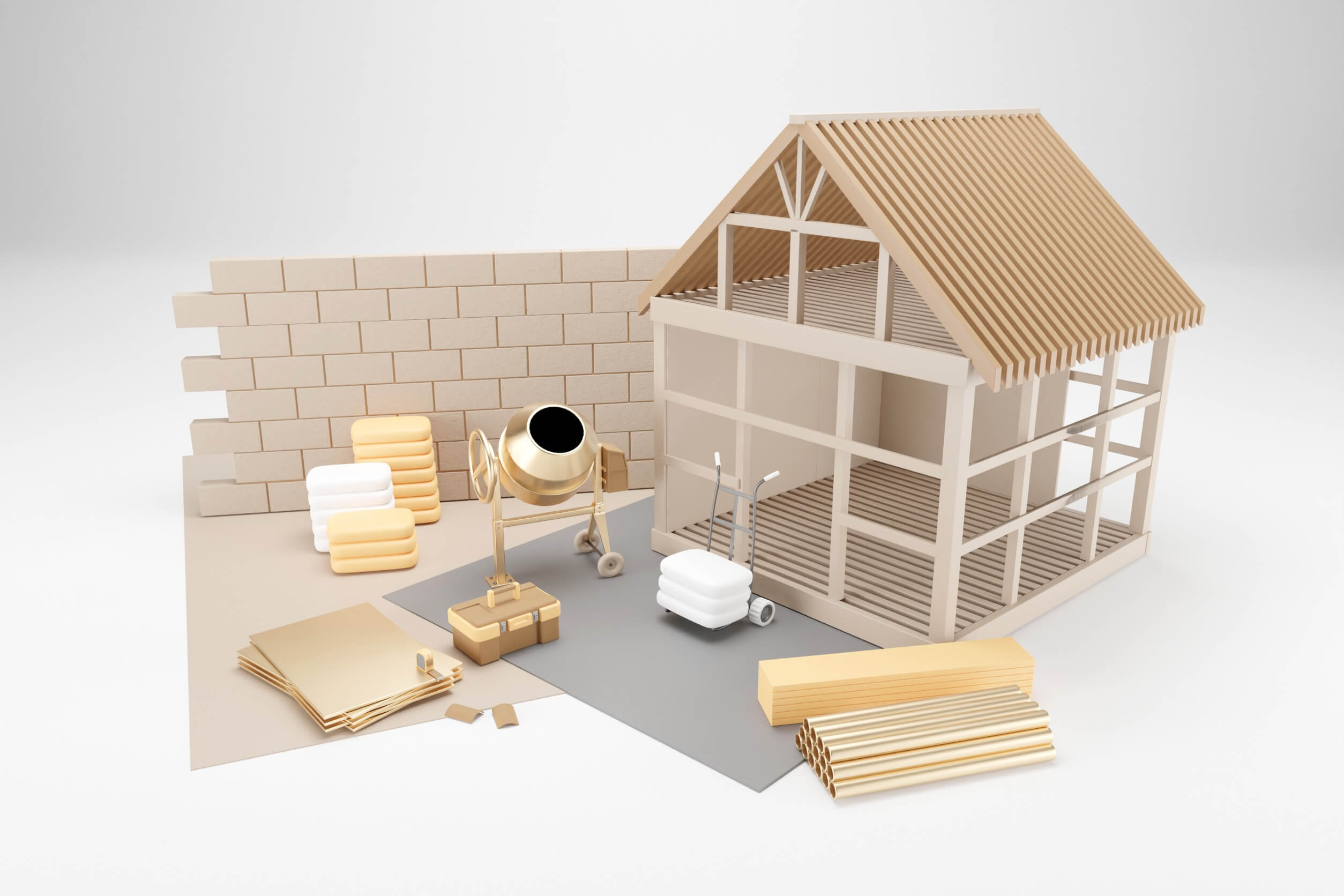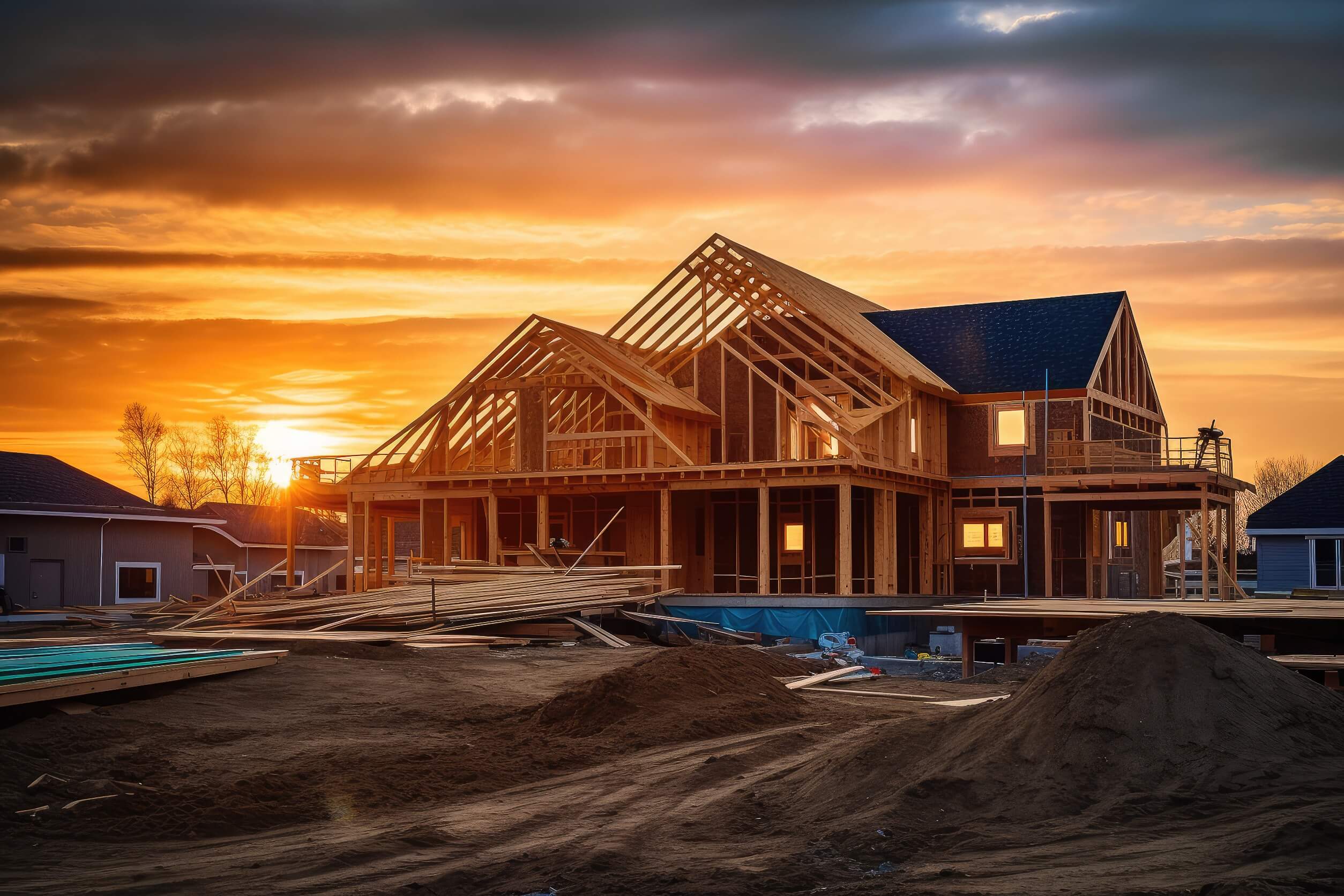- Home
- Buying A Home First Steps
- Building A Home vs Buying
Building A Home vs Buying
Why would you want to consider building a home vs buying? Is it better or just different? Well let’s have a look and compare!
In this particular article, we will compare the advantages and disadvantages of building a home vs buying and existing home. We will be only comparing buying a new build home from a developer to keep it simple.
There are two main types of housing that I would put in the “new build” category. Firstly, and the most popular, would be buying a newly built home from a Developer. The other would be hiring a contractor to build on vacant or "raw" land that you own or buy for that purpose.
We can touch briefly on the “raw land” new build at the end.
Let’s dive in shall we!

Advantages of Building A Home vs Buying
There are numerous advantages to building a home vs buying an existing home. However, there are disadvantages as well. It is merely a question of what is more important to you.
Let’s go over the plus side of the equation first, and see if any of these ring home as important to you.
1) Lower Initial Cost:
Builders selling new homes will usually price their products lower than market value compared to an existing home (unless supply is drastically lower than the demand for an area). Builders don’t want to hang on to the homes they are building longer than they need to, and so often enough you can purchase a new home below market value.
2) Customization:
When a buying a new build most builders offer an ability to make changes, or upgrades, to one degree or another. What make this different than upgrading an existing home, is some customizations are easier and cheaper to do at the design stage (before it is built). For example, upgrading windows, modifying wall locations, changing the kitchen design, or adding a bathroom. This can give a buyer more of what they want for a more reasonable price than if they renovated an existing home.
3) Increased Property Value:
The property value of a newly built community will increase about a year after a majority of the development is completed. The amount it will increase varies depending on the size of the development, and the additional economic activity which evolves in the adjacent areas. The benefit to buyer is more longer term as you will likely gain some additional equity over time.
4) Lower Maintenance Costs:
Newly built homes come with new furnaces, air conditioning units, new roofs, new appliances, etc. Since everything is new, it will require far less repairs and minimal maintenance. An existing home comes with much more to tinker with and fix.
5) Opportunity For Energy Efficiencies:
With a new build, similar to the customization aspect, you have an opportunity to make more energy efficient choices in equipment and utilities. You can have additional insulation installed from the outset. This will reduce the ongoing energy costs and over time this can add up to quite a bit of dollars saved.
6) Opportunity To Shape The Community:
For those that enjoy being active in a community, with so many new residences, there is an opportunity to get in on the ground floor of creating or supporting a local community association. Sports groups or other hobbies will often benefit from new local interest.
Disadvantages of Building A Home
Just like there are many advantages, there is also a flip side to those advantages. After looking at the disadvantages, it should give you a starting point to see if this type of home would work for you or not.
As with many choices in life, there is no perfect option. It is a simple matter of deciding which advantage or disadvantage carries more weight, or is perhaps less important in your own personal situation.
1) Construction Timelines:
Most builders / developers sell the homes before they are built, and construction does not start until a certain percentage of units have been sold. Delivery timelines can be anywhere from 6 months to a year from downpayment to move-in. In addition, most builders include clauses in their contract to change the delivery date, which they will use when there are delays. It can be challenging to adjust your own schedule to new timelines for such a major event in your life.
2) Builder Reputation Research:
You will want to do as much research as possible on the builder or developer as possible. The main reason is you are purchasing something that does not exist yet, and once it is built it is very challenging to correct poor workmanship. I have known people who have had terrible experiences because the quality of the final home was not what they were expecting, and their move in date was a year and a half behind schedule. Ask for references and to see homes which are about to be handed over, as well as online reviews. If there are many issues or complaints - either run or dig deeper. Buyer beware!!
3) Minimal Landscaping:
Most builders hand over a home with a basic walkway, driveway, and a front and back lawn. Everything else is usually optional, and in my experience that also includes eave troughs. You will either need to pay to upgrade, hire, or upgrade it yourself. This will take either time or money at some point, as few people like the “basic” look.
4) Warranty / Deficiency Issues:
As the home gets closer to delivery, the builder will schedule a pre-move-in inspection, as well as a 1 year inspection. This begins a negotiation between owner and builder as to which defects or blemishes are “normal” and which need to be fixed at the builders costs. Depending on the reputation of the builder, this can be a somewhat challenging process, or even an entirely stressful affair. Even with really good builders, there will always be some things which do not get corrected or addressed to the buyers total satisfaction.
5) Neighbourhood Location:
Most new developments are built at the edges of existing cities or towns. Where you save on initial cost, you may have to be willing to commute longer. Often public transportation is not convenient to these new developments and can take years for the infrastructure to catch up or improve. Mail delivery can also be a headache for a few years, and grocery shopping may not be convenient either. These are all common with new developments.
6) Dusty Neighbourhoods:
Many developments are built in phases and you might move in next door to a construction site as your neighbours house is less advanced than your own. Most times the sidewalks and parks shown in the sales brochure and 3D renderings are the very last to be built. Count on living in a construction zone for a year or two. Dust could be a constant problem.

Types of New Builds
Developer Built:
The most common type of new build home, is one built and sold by a development company. That is what the comments are based on for the most part, although the other types could easily share similar benefits and risks. The Developer will own the land, parcel it off, and build single family homes or other types of "free hold" homes.
Another type, is buying in to a new condominium development, either garden home or apartment style. This is done by a developer as well, except that the units have shared space which is jointly owned and managed by a Home Owners Association or Condominium Corporation. The risks and benefits are similar, but have an added complication of multiple owners governing the development after it is complete and sold.
Raw Land Build:
The less common approach, and has a whole different level of advantages and disadvantages, is when a buyer buys the land, then has a home built later. This is less common because of the time investment, a higher risk tolerance, and an ability to access either cash, or additional loans. This type warrants several different pages of articles just to scratch the surface!
What Is More Important To You?
As you can likely tell, as you read through you probably found yourself saying “I am ok with that” or “Yeah, no thanks” to the different pros and cons listed above. This is not the entire list by any stretch either, we are merely scratching the surface.
Hopefully this established enough points, that you could gage if building a home vs buying an existing home deserves more research, or you have read enough to more or less cross it off the list.
There is no one right or wrong answer because it entirely depends on which elements fit with your life. My wife and I started with a newly built home from a developer, but then my background in architectural technology made it easier for me to do the research. You don’t need that type of background to buy a newly built home, it was just an advantage that I had.
It is simply important to do as much research as you can to match your own goals and priorities with the reality of the advantages and disadvantages to make the best choice for your situation.
HOME > Buying A Home First Steps > Building A Home vs Buying (This page)